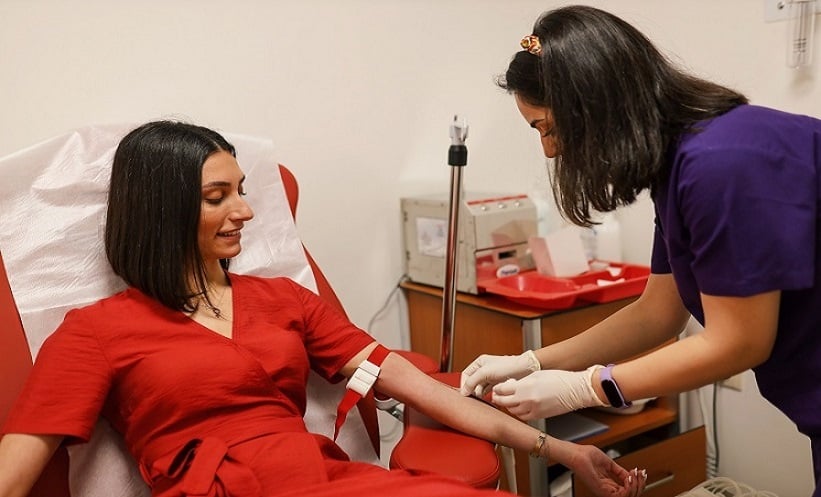RESULTS of a randomised, placebo-controlled study suggest iron deficiency among repeat blood donors does not affect the quality of red blood cells. Further results suggest donors did not experience lower quality of life (QoL) or cognitive dysfunction after developing donation-induced iron deficiency.
Researchers have known about the association between blood donation and iron-deficiency for many years, which is concerning when much of the donated blood supply originates from a relatively small pool of repeat donors. Eldad Hod, Irving Medical Centre, New York, USA, and colleagues, therefore, sought to investigate the impact that blood from iron-depleted donors could have on both the quality of blood supplied and on the wellbeing of donors.
The study included 79 frequent blood donors who were iron deficient (ferritin: <15g/L; zinc protoporphyrin: <60 Mol/mol haem) but had U.S Food and Drug Administration (FDA) approved haematocrit levels (mean age: 34 years; females: 68.4%; White: 70.9%). Each participant provided an initial blood donation and red cell storage quality was assessed using a standard 51-chromium post-transfusion red blood cell recovery study. Within 30 days, the participants were assigned to two treatment groups in a 1:1 ratio. One group received intravenous iron repletion (1 g low-molecular-weight iron dextran; n=39) and the second received a placebo (500 mL saline; n=40). Randomly selected participants also provided a second blood donation and post-transfusion red blood cell recovery study between 4 and 6 months later. QoL surveys were distributed to each participant and an assessment of cognitive function was conducted before and after the post-transfusion recovery studies.
Following the second blood donation visit, haemoglobin increased by a mean of 1.4 g/dL (95% confidence interval [CI]: 0.9–1.9) in the iron repletion group. Further analysis showed that the donated red blood cell units had a higher mean haemoglobin concentration in the repletion group (18.7 g/dL; 95% CI: 18.4–19.1) compared to the placebo group (17.5 g/dL; 95% CI: 17.0–18.0). No significant change in red cell storage quality was reported following iron repletion and iron repletion had no effect on mean QoL scores or cognitive function.
In summary, blood collection agencies should recommend iron repletion to help prevent anaemia and iron deficiencies in repeat donors. Hod commented that the results are “good for the blood supply in that we don’t have to change our current standard practice for blood donation.”







